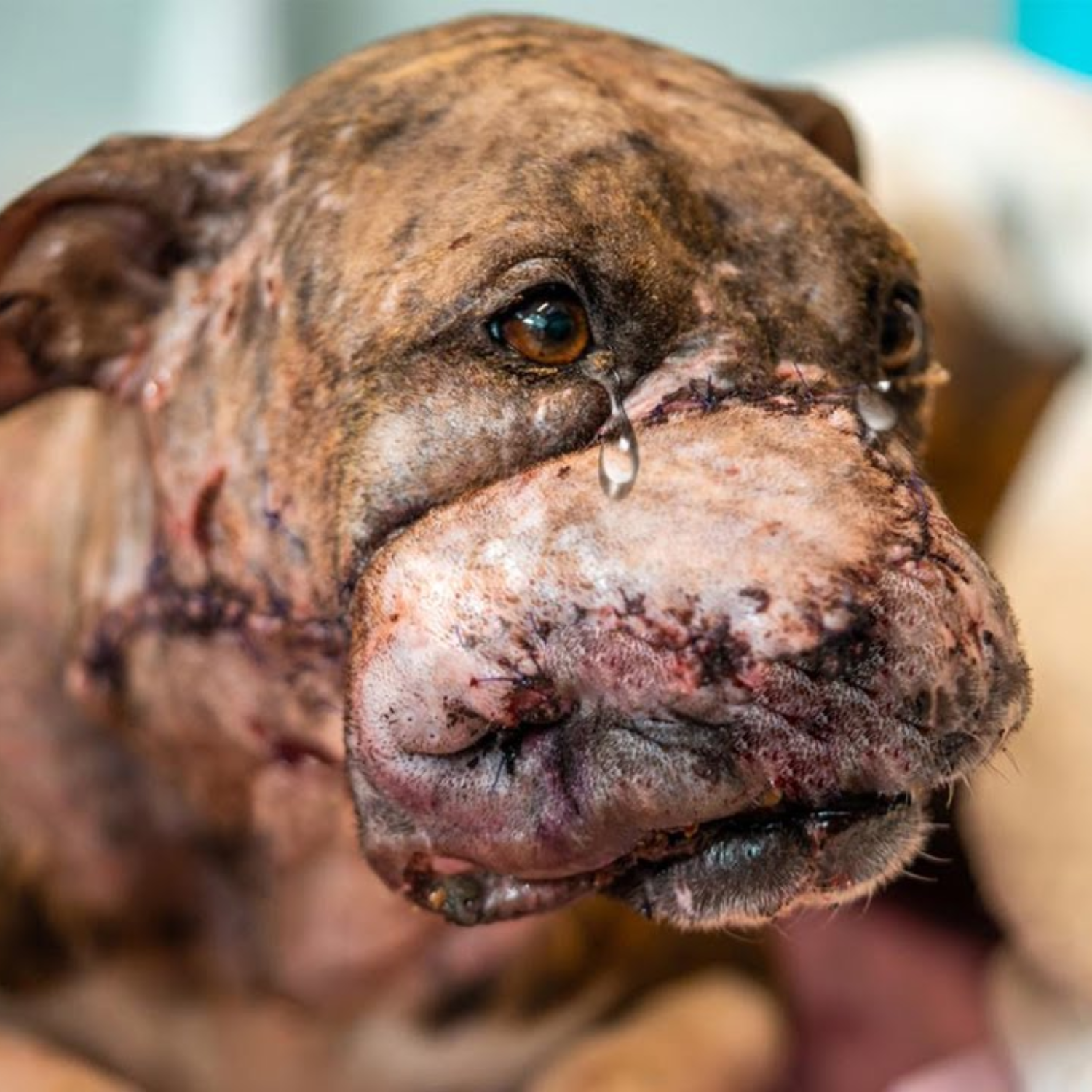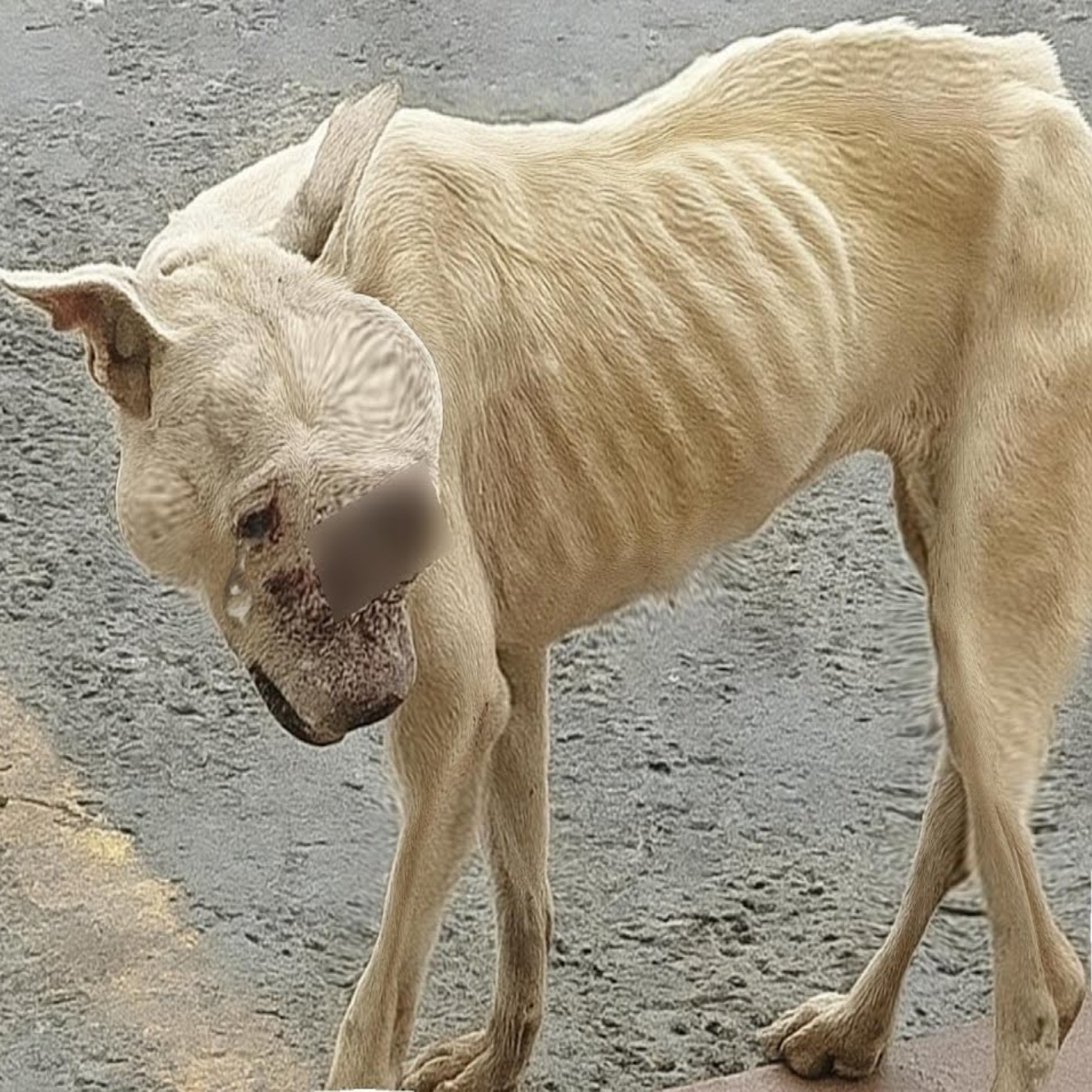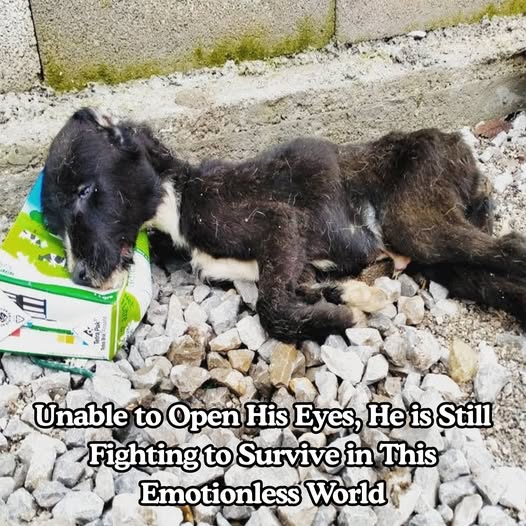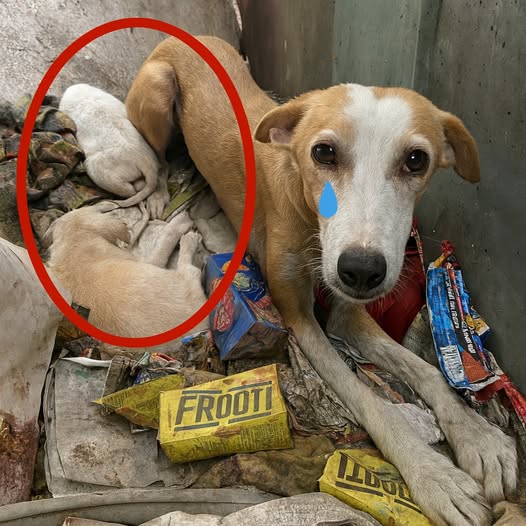On a busy street in Rio de Janeiro, where cars honked impatiently and pedestrians hurried past, a single life lay unnoticed. A dog, emaciated and broken, sprawled on the pavement as though the weight of his suffering had finally pinned him to the ground. His ribs and hip bones jutted sharply against his paper-thin skin, every line of his body revealing months—perhaps years—of neglect and starvation.
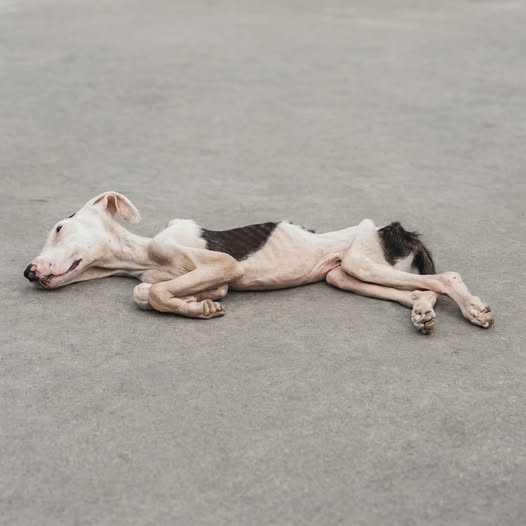
People passed him in waves. Some glanced briefly before averting their eyes, others never even noticed. To most, he was invisible—just another stray, another forgotten soul in a city overflowing with them. The rhythm of life marched on, indifferent to his quiet suffering.
But one man stopped.
His name was Wilson, a longtime animal rescuer in Rio. He had already taken on more than most people could imagine—over 600 animals lived under his care, each with their own story of survival. His days were a blur of feeding, cleaning, vet visits, and endless bills. He knew better than anyone how crushing the responsibility could be. Yet as he caught sight of the skeletal figure lying lifeless on the hot pavement, his heart clenched.
For a moment, he tried to reason with himself. You can’t take on another. You’re already stretched too thin. There are limits, even for you. But as he walked away, the image of the dog wouldn’t leave him. Those hollow eyes, that silent plea—it was as though the animal had reached into his conscience and refused to let go.
Wilson sighed, turned back, and decided. He couldn’t abandon him. Not this one.
When he approached, the dog tried to lift his head but managed only a weak twitch. Still, in that brief glance upward, something happened—a connection, fragile but undeniable. The dog’s weary eyes softened, as if he knew help had finally come. Hope flickered faintly in the dim light of his suffering.

Wilson knelt and gently slid his arms beneath the frail body. The dog was shockingly light, as though he were carrying little more than skin and bones. But in that moment, the weight felt immense—not in pounds, but in responsibility. This was a life, and it was now in his hands. Wilson whispered softly, promising silently that the suffering would end here. He gave the dog a name, marking the beginning of a new chapter. From that moment on, the stray was no longer nameless, no longer invisible. He was seen.
The first stop was the veterinary clinic. The staff, accustomed to seeing neglected strays, gasped at his condition. IV fluids were immediately set up to combat dehydration and malnutrition. The dog lay still, too weak to resist, but his calm demeanor hinted at a quiet trust. Perhaps he had already sensed that these strange hands, these needles and tubes, were not there to harm him but to heal.
Bloodwork and examinations followed. The veterinarian studied the results and delivered unexpected news. Against all odds, despite his horrifying state, the dog carried no major illnesses—no deadly infections, no organ failure. His body had not been destroyed by disease. His only enemy had been starvation.
That revelation changed everything. It meant he had a chance. With steady nutrition, careful monitoring, and patience, his life could be restored.
The treatment plan began with small, nourishing meals throughout the day. His stomach, shrunken from long neglect, couldn’t handle much at once. Each spoonful was given with care, each bite watched closely. Slowly, almost imperceptibly at first, the life began to return. His eyes, once glazed with despair, grew brighter. His body, frail and bony, gained strength little by little.
Wilson visited him daily, speaking gently, stroking his fur. At first, the dog flinched from human touch, uncertain whether it meant pain or comfort. But as days passed, he began to lean into the hand that stroked him, began to wag his tail ever so slightly when Wilson approached. Trust, once shattered, was being rebuilt piece by piece.

The journey was not without setbacks. There were nights when the dog refused to eat, days when exhaustion seemed to overtake him again. But Wilson refused to give up. He had seen too many animals recover from despair to doubt that this one could too. His compassion became the lifeline the dog clung to, the bridge between his broken past and the possibility of a better future.
Weeks passed. The dog’s coat, once dull and patchy, began to show signs of new growth. His legs, once too weak to support him, grew steadier. He started to stand, then walk, then trot clumsily across the clinic floor. Each step felt like a victory, not just for him, but for everyone who had witnessed his suffering.
One morning, Wilson arrived to find the dog waiting at the front of his kennel, tail thumping eagerly against the bars. The sight nearly brought him to tears. The dog who once lay forgotten and motionless on a busy Rio street was now full of life, eager for affection, eager for the future.
The transformation was astonishing. What had once been a story of despair had become a story of hope. His body grew stronger, his spirit brighter. Where there had once been hollowness and silence, now there was joy—playful barks, curious glances, wagging tails.
Wilson knew that this rescue was more than just another life saved. It was a reminder of why he did what he did, despite the endless challenges. For every passerby who walked past, indifferent, there had to be at least one person willing to stop, to notice, to act.

The dog’s recovery is a living testament to the power of compassion. He stands today as proof that abandonment does not have to be the end of the story. With love, patience, and care, even the most broken lives can be restored.
And while Wilson continues his tireless work with hundreds of other animals, this dog—this one fragile soul who once lay invisible on the streets—holds a special place in his heart. Not just because of the rescue itself, but because of the reminder it carried: every life matters.
Somewhere in Rio de Janeiro, among the bustling streets and endless noise, one dog no longer walks unseen. He walks with his head high, his spirit unbroken, and his heart full of trust once more. He is not invisible. He is not forgotten. He is loved.
